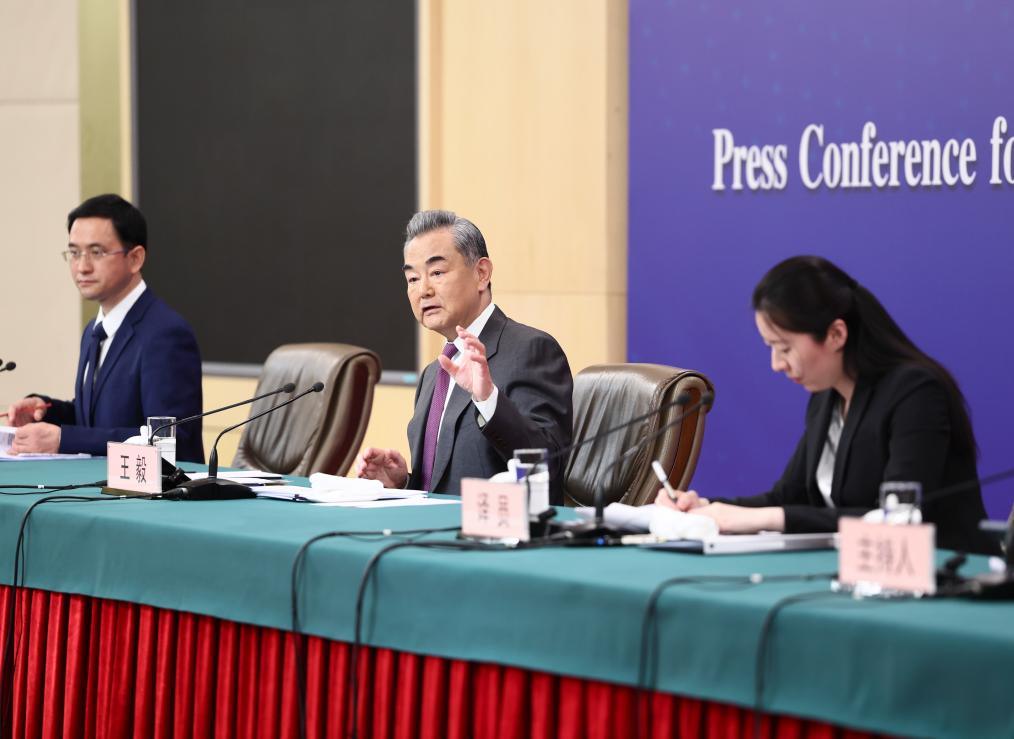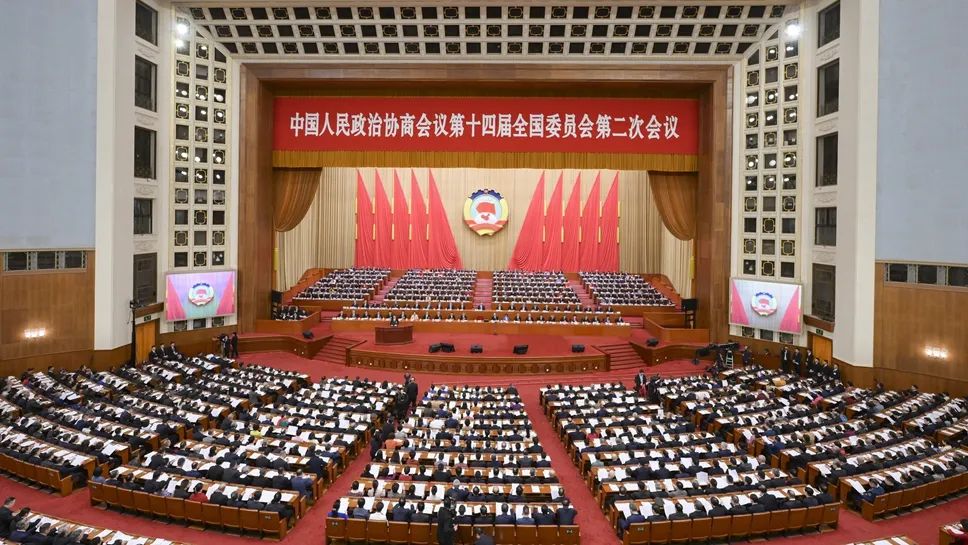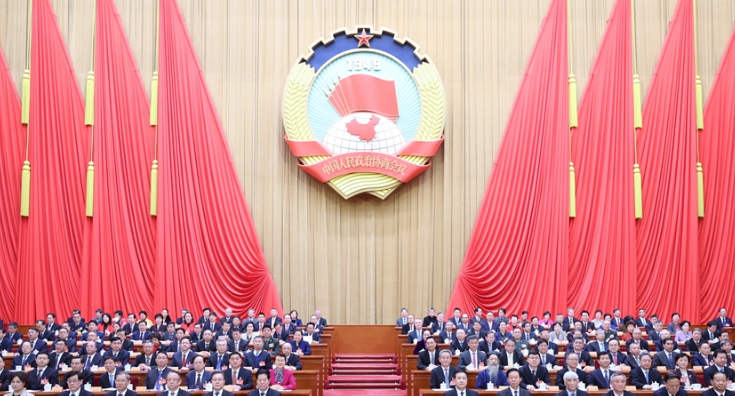G20峰会专题
[提要] 二十国集团(G20)领导人第七次峰今明两日将在墨西哥洛斯卡沃斯举行。中国国家主席胡锦涛应邀出席峰会,第七次在这一重要全球治理平台上发出中国声音。与会期间,胡锦涛还将会见有关国家的领导人。
中新网6月18日电 二十国集团(G20)领导人第七次峰今明两日将在墨西哥洛斯卡沃斯举行。中国国家主席胡锦涛应邀出席峰会,第七次在这一重要全球治理平台上发出中国声音。与会期间,胡锦涛还将会见有关国家的领导人。
胡锦涛阐述中方主张 介绍中国经济形势
在结束对丹麦的国事访问后,胡锦涛当地时间16日抵达洛斯卡沃斯,出席本次峰会。在此前夕,胡锦涛接受了墨西哥主流媒体书面采访,就二十国集团峰会、发展中国家团结合作、中墨关系等问题阐述了中方立场和主张,并介绍了中国经济形势及前景。
关于洛斯卡沃斯峰会,胡锦涛指出,二十国集团包括了主要发达国家和新兴市场国家,构成相对均衡,代表性较强,为应对国际金融危机、促进世界经济稳定和复苏发挥了重要作用,成为全球经济治理的主要平台。在当前世界经济形势下,各成员应该本着同舟共济、互利共赢的精神,共同致力于保增长、促稳定,巩固并增强来之不易的经济复苏势头。
胡锦涛表示,为此,我们要继续加强宏观经济政策协调,在合作中谋共赢。要继续推进国际金融体系改革,尽快完成国际货币基金组织份额和治理改革目标,完善国际货币体系,加强国际金融监管。要继续反对各种形式的保护主义,推动多哈回合谈判。要继续重视发展问题,努力促进发展中国家经济发展,以此带动全球总需求扩大。
胡锦涛特别指出,对欧洲主权债务等各方普遍关注的问题,二十国集团要以建设性和合作性的方式予以讨论,鼓励并支持欧方有关努力,共同向市场传递信心。
关于中国经济形势,胡锦涛指出,当前,中国经济运行总体平稳。在外部经济环境复杂严峻的大背景下,中国有针对性地加强和改善宏观调控,加快转变经济发展方式和调整经济结构,构建扩大内需长效机制,促进经济增长向依靠消费、投资、出口协调拉动转变,保持经济平稳较快发展,保持社会和谐稳定。
胡锦涛介绍说,今年第一季度,中国国内生产总值同比增长8.1%,经常账户盈余占国内生产总值比重已下降至1.4%。这些为世界经济复苏和增长作出了重要贡献。
胡锦涛指出,中国经济是世界经济的重要组成部分。中国将继续实施积极的财政政策和稳健的货币政策,正确处理保持经济平稳较快发展、调整经济结构、管理通胀预期的关系。我们有信心继续保持中国经济平稳较快发展,为世界经济发展作出实实在在的贡献。
第12次“胡奥会”有望在墨西哥举行
中美关系是当今世界最重要的双边关系之一,两国最高领导人之间的互动备受关注。自奥巴马就任美国总统以来,已经与胡锦涛举行了11次会晤。第12次“胡奥会”能否在墨西哥举行,也成为本次峰会的一大看点。
对此,中国副外长崔天凯此前在北京透露,胡锦涛同美国总统奥巴马是否在与会期间举行会晤,双方还在商谈有关安排。他同时表示,“媒体朋友做好报道准备总不会错的”。
崔天凯说,从过去历次G20峰会来看,胡锦涛和奥巴马都举行了会晤。中美双方有一个共识,就是两国最高领导人除了双边交往以外,要利用各种共同出席的多边场合进行会晤。
“所以,从奥巴马总统就任到现在,胡主席已经和他举行了11次会晤。如果这次在洛斯卡沃斯再举行会晤的话,将是他们之间第12次会晤。这还只是指他们面对面的会晤,不包括通话、信函往来等。”他说。
崔天凯最后表示,关于这次在洛斯卡沃斯是否举行会晤,中方和美方还在商谈有关安排。
峰会聚焦世界经济形势 中方提五点希望
二十国集团由中国、阿根廷、澳大利亚、巴西、加拿大、法国、德国、印度、印度尼西亚、意大利、日本、韩国、墨西哥、俄罗斯、沙特阿拉伯、南非、土耳其、英国、美国以及欧盟等二十方组成。其成员人口占全球2/3、国土面积占全球60%、国内生产总值占全球90%、贸易额占全球80%,具有涵盖面广、代表性强的突出特点。
鉴于二十国集团兼顾了发达国家和发展中国家以及不同地域的利益平衡,自2008年升格为领导人峰会后,其作用和影响力日益受到各方关注。
二十国集团迄今已举行过6次峰会,主要讨论全球重大经济金融热点问题,为推动世界经济复苏及国际金融体系改革作出重要贡献。中国积极参与G20活动,胡锦涛应邀出席历次峰会并发表重要讲话。中国还曾于2005年在北京成功主办G20第七次财长和央行行长会议,胡锦涛出席开幕式并致辞。
本次洛斯卡沃斯峰会将于18日至19日举行,重点讨论世界经济形势、加强国际金融体系、发展问题、贸易问题、就业问题等议题。
中方近日表示,这次峰会是在世界经济面临诸多不稳定和不确定因素、二十国集团在国际经济事务中作用更受重视的背景下举行的。中方期待峰会继续致力于保增长、促稳定,向世界经济传递信心,向全球经济治理提供动力。
中方希望与会各方重点做好五方面工作:第一,体现二十国集团同舟共济、合作共赢的伙伴精神。第二,携手应对世界经济领域重大和紧迫问题。第三,推动建立公平、公正、包容、有序的国际金融体系。第四,促进国际贸易健康稳定发展。第五,继续把发展问题作为二十国集团常设议题。中方有信心继续办好自己的事情,并愿同包括二十国集团在内的国际社会加强合作,共同促进世界经济强劲、可持续、平衡增长。
G20宣言独家发布:采取一切措施保欧元区完整
网易财经6月20日洛斯卡沃斯讯 G20洛斯卡沃斯峰会公报宣言今日出炉。网易财经前方报道员第一时间拿到全文。宣言称,20国集团成员中的欧元区要采取一切必要的政策措施,以维护该地区的完整性和稳定,提高金融市场的运作,并打破主权和银行之间的反馈回路。我们期待着欧元区与希腊新政府在未来工作中的良好伙伴关系,以确保他们留在欧元区内的改革和可持续发展的道路。
宣言还称,G20成员国达成了向国际货币基金组织增资的承诺。承诺超过4500亿美元,不包括根据2010年改革后配额的增加。这些资源将面向国际货币基金组织的全体成员,并没有指定给任何特定地区。这些资源可以作为合格的储备资产,通过双边贷款或票据购买协议等,已经由国际货币基金组织执行董事会已批准投资方式从国际货币基金组织总资源账户输出。
宣言称,在货币政策维持中期物价稳定的同时,继续支持经济复苏。我们将加强我们对银行的信心,保持金融部门改革的需要的同时采取适当行动,以保障信贷渠道、全球支付和结算系统的完整性,维护我们的金融体系。健康的银行放贷能力,是全球经济复苏的关键。
宣言称,G20重申承诺,将更快的向市场决定的利率制度前进以反映基本面,避免持久的汇率失调,避免货币竞争性贬值。中国承诺将让市场力量在决定人民币汇率中起更大的作用,并致力于汇率改革,提高汇率政策透明度。
宣言称,在认识到有必要继续增长为导向的政策支持需求和经济复苏的背景下,美国将确保其公共财政的长期可持续,美国将校准其财政整顿的步伐保证2013年避免财政急剧收缩。
G-20 Leaders Differ Over Euro Zone
World leaders papered over their differences after clashing over the euro-zone debt turmoil, punting the deepening troubles to other meetings despite warnings of another global crisis.
The Group of 20 advanced and developing economies, after a two-day summit, pushed European nations to integrate their banking systems quickly to calm the financial turbulence hitting Spain and threatening to ricochet around the world.
But the gathering produced no acceleration in the timeline for financial integration, such as guaranteeing bank deposits across the 17-nation currency union. European leaders meet again late next week to discuss their road map, which could take months to develop and years to implement.
The G-20 leaders, whose nations represent about 85% of global economic output, appeared to recognize the risk that euro-zone fears could spark turmoil across financial markets in the coming months. But they found themselves with few options as political forces in key nations restrain quicker moves.
'We will act together to strengthen recovery and address financial market tensions,' the G-20 leaders said in their joint statement.
The gathering here did little to relieve worries, hanging over investors for months, that Europe's latest troubles could spread beyond Greece and into Spain, the euro zone's fourth-largest economy. Spain's surging borrowing costs suggest rising doubts about the country's ability to buy time while it overhauls a struggling economy and recapitalizes its banks.
Tensions mounted throughout the meetings in this Mexican coastal resort. As many leaders from outside Europe pressed for swifter action, some euro-zone leaders grew defensive and maintained they were moving with urgency to overcome longstanding structural problems in their currency union.
The rift exposed a dilemma for the G-20 in its seventh gathering of world leaders since the U.S. financial crisis struck and dragged down the global economy.
With just four of the euro zone's 17 nations attending the Mexico summit, European leaders sought to defer any major commitments until their meeting in Brussels late next week. They pushed back against the notion that the 27-nation European Union could not solve the crisis on their own.
At the same time, European officials welcomed an expansion of resources at the International Monetary Fund, the world's emergency lender. Euro-zone officials started pushing that fundraising effort late last year in hopes the IMF could help contain the fallout from Europe's crisis.
The fund said it had received about $456 billion of commitments, including the latest additions at the summit of $43 billion from China and $10 billion each from Brazil, Russia and India. The new pool of money nearly doubles the IMF's available lending capacity to about $700 billion. But using that money within the euro zone would likely be difficult.
The stakes couldn't be higher for U.S. President Barack Obama, who is running for re-election in a campaign focused on his stewardship of the world's largest economy. Americans already give the president poor marks for his handling of the economy. A spread of the crisis in Europe, which Mr. Obama says is already harming the U.S., would further hurt his chances of winning in November.
That calculation isn't lost on Mr. Obama, who is increasingly interjecting himself into European efforts to broker a solution.
Mr. Obama spent about 45 minutes meeting one-on-one with German Chancellor Angela Merkel discussing the European crisis, and he met Tuesday with her and five other European leaders.
Mr. Obama's last turn on the world stage before November coincided with heightened attention to a host of other foreign policy challenges, including the violence in Syria, nuclear talks with Iran and strained U.S. relations with Russia.
The president came away with little substance on most fronts. His first meeting with Russian President Vladimir Putin produced no major breakthroughs, particularly on Syria. The U.S. has accused Russia, which has close ties with Syrian President Bashar al-Assad, of undermining international efforts to facilitate the leader's exit.
Mr. Obama said he and Mr. Putin agree on an Iran strategy, but the latest round of talks in Moscow this week appear to have made little progress.
On Europe, Mr. Obama's powers are limited. He spent the two days at the summit pressuring leaders, but was left to wait until next week's European gathering to see whether his engagement could show any success.
'European leaders are pledging to do all necessary measures to safeguard their monetary union, and as they escalate their response,' said Lael Brainard, U.S. Treasury under secretary for international affairs. She said the world would see European officials 'putting flesh on the bones in the weeks ahead' on their political commitments.
Remarks by President Obama and President Hu Jintao of China before Bilateral Meeting
Convention Center
Los Cabos, Mexico
4:09 P.M. MDT
PRESIDENT OBAMA: I just want to say that it’s a great pleasure once again to have this bilateral meeting with President Hu.
Over the last several years, as a consequence of not only extensive one-on-one meetings, but also because of the outstanding work that our teams have done through the strategic and economic dialogue, we have been able to really create a new model for practical and constructive and comprehensive relations between our two countries.
Obviously, as two of the largest economies in the world, much of our focus has been on increasing trade and commerce between our two countries in a way that creates mutual benefits, and we have made significant progress in not only our bilateral relations, but also in helping to manage through some very difficult economic crises.
We've also been able to cooperate on a range of regional issues relating to the Asia Pacific region, but also with respect to conflict and security challenges around the world.
In the wake of the G20, this will be a good opportunity for us to recap the work that both China and the United States have to do to sustain global economic growth and to make sure that we are creating jobs and opportunity for our citizens.
And I’m also looking forward to having the opportunity to discuss some immediate issues that the world confronts -- being able to discuss Iran, North Korea, and the challenges of curbing nuclear proliferation. This will also give us an opportunity to discuss the situation in Syria, and to arrive at a cooperative approach that can end the bloodshed there and lead to the kind of legitimate government that I think we all hope for.
So once again, I want to thank President Hu for his leadership both in the G20 and in helping to nurture the kind of cooperative relationship that we’ve developed. And I look forward very much to our discussion.
PRESIDENT HU: (As interpreted.) I’m delighted to meet with you, Mr. President, again. It’s already our 12th meeting. In March this year, you and I had very close in Seoul, Korea, and over the past three months, the working teams of both countries have been working in real earnest to follow through with the important agreement you and I reached. And we have made new progress in developing a cooperative partnership between China and the United States.
Building a good, stable, and productive China-U.S. relationship is in our mutual interest of our two countries and our two peoples, and also contributes to peace and development.
China is willing to work together with the United States to remain firmly committed to building a cooperative partnership. We are willing to work with the United States to continue building trust and cooperation, appropriately handle disagreements and sensitive issues, and continue to move forward with this cooperative partnership on a sustained, steady and sound course.
I highly appreciate the important role played by President Obama in promoting the growth of this relationship. I believe that the talks we are going to have are going to be conducted in a sincere, friendly and productive manner.
PRESIDENT OBAMA: Thank you.
Remarks by President Obama at Press Conference After G20 Summit
Convention Center
Los Cabos, Mexico
5:47 P.M. MDT
PRESIDENT OBAMA: I want to begin by thanking my good friend and partner, President Calderon, and the people of Los Cabos and Mexico for their outstanding hospitality and leadership. Mexico is the first Latin American country to host a G20 summit, and this has been another example of Mexico playing a larger role in world affairs, from the global economy to climate change to development.
Since this is my last visit to Mexico during President Calderon’s time in office, I want to say how much I’ve valued Felipe’s friendship and the progress that we’ve made together over the past several years. And building on the spirit here at Los Cabos, I’m absolutely confident that the deep ties between our countries will only grow stronger in the years to come.
Now, over the past three years, these G20 summits have allowed our nations to pull the global economy back from a free fall and put us back on the path of recovery and growth. In the United States, our businesses have created jobs for 27 months in a row -- more than 4 million jobs in all -- and our highest priority continues to be putting people back to work even faster.
Today, we recognize that there are a wide range of threats to our ongoing global economic recovery and growth. But the one that’s received the most focus obviously and that does have a significant impact on the United States as well as globally is the situation in Europe. As our largest trading partner, slower growth in Europe means slower growth in American jobs. So we have a profound interest in seeing Europe prosper. That’s why I’ve been consulting closely with my European counterparts during this crisis, as we’ve done here at Los Cabos.
I do think it’s important to note, however, that most leaders of the eurozone, the economies are not part of the G20. The challenges facing Europe will not be solved by the G20 or by the United States. The solutions will be debated and decided, appropriately, by the leaders and the people of Europe.
So this has been an opportunity for us to hear from European leaders on the progress they’re making and on their next steps -- especially in the wake of the election in Greece, and because they’re heading into the EU summit later this month. It’s also been a chance for the international community, including the United States -- the largest economy in the world, and with our own record of responding to financial crises -- to stress the importance of decisive action at this moment.
Now, markets around the world as well as governments have been asking if Europe is ready to do what is necessary to hold the eurozone together. Over the last two days European leaders here in Cabos have made it clear that they understand the stakes and they pledged to take the actions needed to address this crisis and restore confidence, stability, and growth. Let me just be a little more specific.
First, our friends in Europe clearly grasp the seriousness of the situation and are moving forward with a heightened sense of urgency. I welcome the important steps that they have already taken to promote growth, financial stability and fiscal responsibility. I’m very pleased that the European leaders here said that they will take all necessary measures to safeguard the integrity and stability of the eurozone, to improve the functioning of the financial markets. This will contribute to breaking the feedback loop between sovereigns and banks, and make sovereign borrowing costs sustainable.
I also welcome the adoption of the fiscal compact and it’s ongoing implementation, assessed on a structural basis, together with a growth strategy which includes structural reforms.
G20 leaders all supported Europe working in partnership with the next Greek government to ensure that they remain on a path to reform and sustainability within the eurozone. Another positive step forward was the eurozone’s commitment to work on a more integrated financial architecture -- including banking supervision, resolution, and recapitalization, as well as deposit insurance. Also, in the coming days Spain will lay out the details of its financial support request for its banks restructuring agency, providing clarity to reassure markets on the form and the amount and the structure of support to be approved at the earliest time.
It’s also positive that the eurozone will pursue structural reforms to strengthen competitiveness in deficit countries, and to promote demand and growth in surplus countries to reduce imbalances within the euro area.
And finally, I welcome the fact that Europe is determined to move forward quickly on measures to support growth and investment including by completing the European single market and making better use of European funds.
Of course, Europe is not, as I said, the only source of concern when it comes to global growth. The G20 also agreed that reversing the economic slowdown demands a renewed focus on growth and job creation.
As the world’s largest economy, the best thing the United States can do is to create jobs and growth in the short term, even as we continue to put our fiscal house in order over the long term. And as part of that effort, we’ve made significant progress in advancing our trade agenda. This is an essential to promoting growth, innovation and jobs in the United States.
Here in Los Cabos, we announced important steps towards closer integration with three of our major trading partners. Both Mexico and Canada have been invited to join the Trans-Pacific Partnership negotiations, which is an ambitious 21st century trade agreement that will now include 11 countries. And this agreement holds enormous opportunities to boost trade in one of the world’s fastest growing regions.
Even as we build this new framework for trade in the Asia Pacific, we’re also working to expand our trade with Europe. So today, the United States and the European Union agreed to take the next step in our work towards the possible launching of negotiations on an agreement to strengthen our already very deep trade and investment partnership.
In addition, and in keeping with our commitments at the last G20 in Cannes, we agreed that countries should not intervene to hold their currencies at undervalued levels, and that countries with large surpluses and export-oriented economies needed to continue to boost demand.
So, in closing, I’d note that with Mexico’s leadership, we continue to make progress across a range of challenges that are vital to our shared prosperity -- from food security to Greek economic growth that combats climate change, from financial education and protection for consumers to combating corruption that stifles economic growth, and in strengthening financial regulation to creating a more level playing field. All of this happened in large part because of the leadership of President Calderón. I want to thank him, and I want to thank my fellow leaders for their partnership as we work very hard to create jobs and opportunity that all of our citizens deserve.
So with that, I’m going to start with Ben Feller of AP.
Q Thank you very much, Mr. President. We’re all hearing a lot of encouraging promises about what Europe plans to do, but can you assure us that those actions, if they’re able to come together on them, will actually do anything to create jobs in America this year? And if Europe is not able to rally in a big way pretty quickly, do you think that will cost you the election?
THE PRESIDENT: Well, first of all, I think that what I’ve heard from European leaders during the course of these discussions is they understand the stakes. They understand why it’s important for them to take bold and decisive action. And I’m confident that they can meet those tests.
Now, I always show great sympathy for my European friends because they don’t have to deal with one Congress -- they have to deal with 17 parliaments, if you’re talking about the eurozone. If you’re talking about the European Union, you’re talking about 27. And that means that sometimes, even after they’ve conceived of approaches to deal with the crisis, they have to work through all the politics to get it done. And markets are a lot more impatient.
And so what I’ve encouraged them to do is to lay out a framework for where they want to go in increasing European integration, in resolving the financial pressures that are on sovereign countries. Even if they can’t achieve all of it in one full swoop, I think if people have a sense of where they’re going, that can provide confidence and break the fever. Because if you think about Europe, look, this remains one of the wealthiest, most productive regions of the world. Europe continues to have enormous strengths -- a very well-educated, productive workforce. They have some of the biggest, best-run companies in the world. They have trading relationships around the world. And all of these problems that they’re facing right now are entirely solvable, but the markets, when they start seeing potential uncertainty, show a lot more risk aversion, and you can start getting into a negative cycle.
And what we have to do is it to create a positive cycle where people become more confident, the markets settle down, and they have the time and the space to execute the kinds of structural reforms that not only Europe, but all of us are having to go through, in balancing the need for growth, but also dealing with issues like debt and deficits. And I’m confident that over the next several weeks, Europe will paint a picture of where we need to go, take some immediate steps that are required to give them that time and space. And based on the conversations that I’ve had here today and the conversations that I’ve had over the last several months, I’m confident that they are very much committed to the European project.
Now, all this affects the United States. Europe as a whole is our largest trading partner. And if fewer folks are buying stuff in Paris or Berlin, that means that we’re selling less stuff made in Pittsburgh or Cleveland. But I think there are a couple of things that we’ve already done that help. The financial regulatory reforms that we passed means that our banks are better capitalized. It means that our supervision and our mechanisms for looking at trouble spots in our financial system are superior to what they were back in 2008. That’s an important difference. But there's still some more things we can do.
And the most important thing we can do is something that I’ve already talked about. If Congress would act on a jobs plan that independent economists say would put us on the path of creating an extra million jobs on top of the ones that have already been created -- putting teachers back in the classroom, putting construction workers back on the job rebuilding infrastructure that badly needs to be rebuilt -- all those things can make a significant difference. And given that we don’t have full control over what happens in Europe or the pace at which things happen in Europe, let’s make sure that we’re doing those things that we do have control over and that are good policy anyway.
 天之聪教育
天之聪教育
 2012-09-05
2012-09-05
 天之聪教育
天之聪教育
 454次
454次


 点赞(0)
点赞(0)

 收藏
收藏

 收藏资讯
收藏资讯

 收藏资讯
收藏资讯

 收藏资讯
收藏资讯

 收藏资讯
收藏资讯